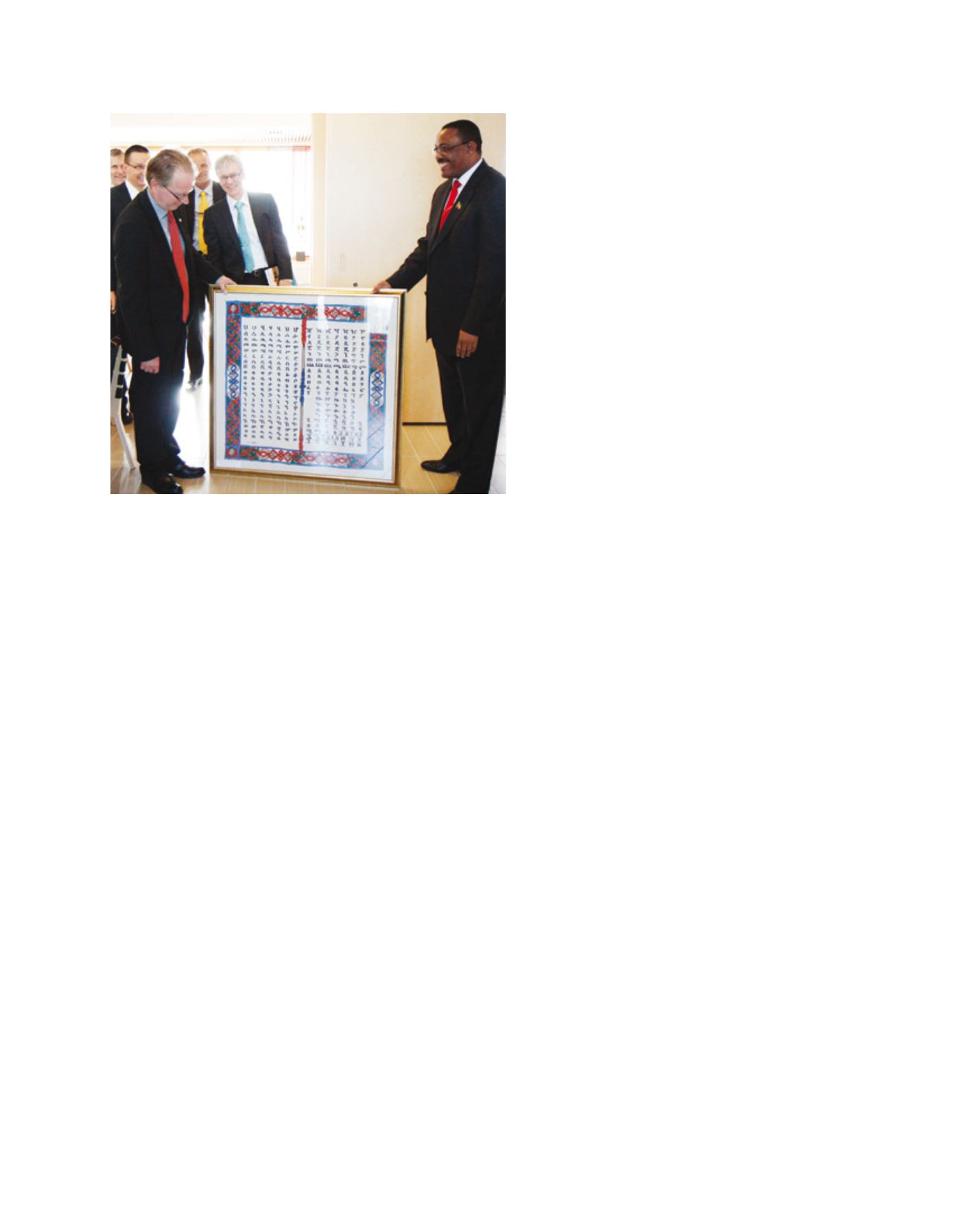

[
] 244
W
ater
C
ooperation
, S
ustainability
and
P
overty
E
radication
that the Finnish Government has recently introduced
some programmes that will also promote North-South
collaboration as part of the general policy of emphasiz-
ing international education and research.
Domestic cooperation in the water sector
The majority, if not all water sector actors have organ-
ized themselves under the Finnish Water Forum
umbrella organization.
1
It has a mandate to both export
and develop, which makes it instrumental in bringing
together sector actors and enabling them to cooper-
ate smoothly in the highly competitive water service
markets. The latest social forum for sector profession-
als is on LinkedIn at ‘Finnish Water Professionals for
Development’ – a discussion forum allowing Finnish
professionals to engage in professional dialogue from
the mountains of Nepal to the rural town of Gilgel-Beles
in Ethiopia. Horizontal learning and dialogue are still
key in bridging knowledge gaps.
Lessons learned
Allowing for some inaccuracy, the commonly cited
results of the Finnish-funded ODA show that some 6
million people been served with safe water supply and
many more with improved sanitation. For example, the
World Bank recently estimated that almost 700,000
people in Amhara, Ethiopia were served with sanita-
tion through the Finnish-funded WSP single donor
trust fund.
An evaluation of the Finnish-supported water sector
ODA was carried out in 2010, covering activities from
1995-2009. It presented the following key findings:
• Finnish cooperation in the water sector contributes
directly to improved living conditions for the
targeted beneficiaries
• some inadequacies were observed, particularly in
project cycle management and the policy framework
• in the visited countries, most of the Finnish
projects have proved remarkable successes
• upscaling and replication of positive experiences
are also becoming major challenges: they should
be incorporated into the design of successive
project phases.
A more recent meta-evaluation compiling evaluations
from many sectors indicates that the water sector has
been quite successful and suggests that additional
resources should be allocated to the sector for future
collaboration.
Especially in water services, local political, economic,
social, technological, environmental and legislative
conditions have to be taken into account. Yet we seem
to have many common challenges. One of the most
demanding ones is the question of ageing infrastructure,
its renovation need and related costs. Another common
interest is to improve services and conditions through
various types of reforms and development work. Thus,
we have many lessons to learn and share. We are in the
same proverbial boat, so why not fish together?
Sanitation
The Global Dry Toilet Association of Finland, a professional NGO,
was established in 2002. It promotes the use of dry toilets (DT) as
a sanitation option through advocacy, research, surveys, seminars
and more. In addition to national activities, the association organ-
ized four international DT conferences between 2003 and 2012. It
has also conducted several projects in the developing economies
of Zambia and Swaziland, as well as in Finland and other parts of
Europe. The association tries to raise awareness that water-borne
sanitation is not the only option and that alternatives should be
seriously considered, especially in areas where water is scarce or the
risk of contaminating water bodies exists.
Education
The Finnish-African Water Alumni, consisting of over 100 water
experts from Ethiopia, Eritrea, Kenya, Namibia, Tanzania and
Zambia, is a substantial and unique network. The alumni have
gained key positions, for instance in ministries, public institu-
tions, water utilities, consulting engineering companies, private
consultants, contracting companies, universities, other training
institutes, international agencies and even as leading politicians.
The positive impact of education is best shown by the fact that
in 2012 a TUT alumnus, Hailemariam Desalegn, was appointed
Prime Minister of Ethiopia. Since 2013 he has been the Chair of
the African Union.
Since the programme ended in 1992, North-South collaboration
has been maintained at some level and it will hopefully become more
active in the future. The challenge of human resources development
is the long time frame required by the activities. Interestingly, the
collaborating countries in the South seem to have a similar type
of generation gap in terms of professionals. Within the next few
years many professionals will retire, making it necessary to educate
a new generation as soon as possible. A positive development is
The current Ethiopian Prime Minister, Ato Hailemariam Desalegn, visiting his old
university in Tampere as Foreign Minister in 2012
Image: Virpi Andersin


















